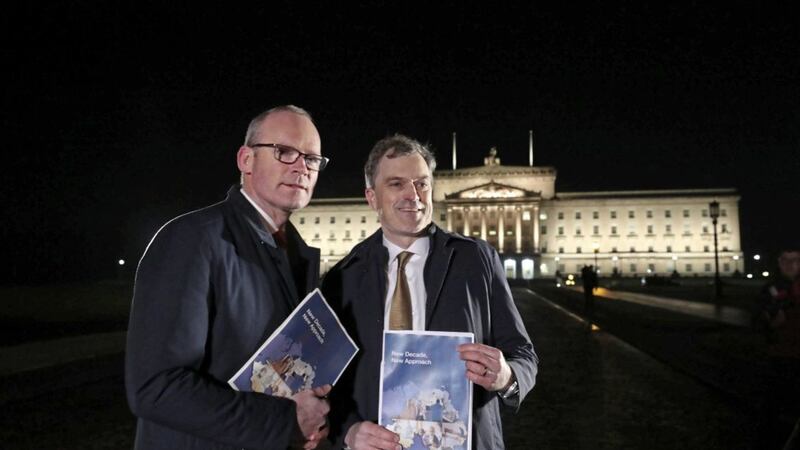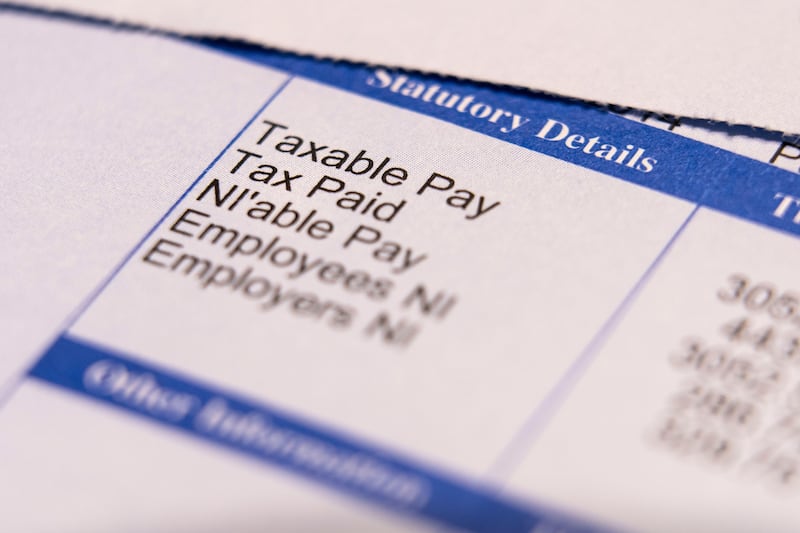In New Decade, New Approach, all parties agreed to devolve the minimum wage as a “priority action”.
This was apparently included at the insistence of Alliance. Nobody else cared but they reckoned it was harmless and nothing would come of it. Even Alliance promptly moved onto more radical notions of a universal basic income. There is no record of the subject being mentioned in Stormont or Westminster since.
Suddenly, the cost of living crisis and projected inflation of up to 10 per cent mean wages are a priority. Stormont is under pressure to raise public sector salaries - teachers are threatening to strike - and to spend large parts of its budget on emergency grants, mostly for people on out-of-work benefits.
Low-paid workers are the unaddressed gap in the middle. It will be untenable for ministers to leave them to shiver while helping almost everyone else.
The cost of living crisis is still within what a realistic minimum wage increase could solve. The top rate, known as the national living wage, is increasing by 59 pence at the start of next month to £9.50 an hour. That will give full-time employees an extra £1,165 per year.
The Consumer Council says the heating bill for a family of four in Northern Ireland could rise by up to £1,600 this year. If Stormont added another 22 pence onto the national living wage, that bill would be completely covered by one working adult.
Other bills are rising as well, of course, but hopefully not on this scale.
There are three reasons Stormont sees no point discussing the minimum wage.
The first is general concern a raise would cause unemployment, inflation or both. Appropriately, these fears date to the oil shock of the 1970s and desperate attempts to control wage-price spirals.
The minimum wage has defied many predictions of disaster since its introduction in 1998 by coinciding with the longest period of low unemployment and low inflation in modern British history. It turns out a mass consumer economy benefits from ensuring the masses can consume, certainly in normal times and within reasonable parameters - and although normal times are over, a large increase remains reasonable.
The Low Pay Commission is the official body advising government on a ‘safe speed’ level for the minimum wage. It recommends a national living wage of two-thirds median income, which would be £10.55 an hour on 2021’s figures. The government accepts this and has just brought its target date to reach it forward to 2024, although inflation could make it slip back again.
So the minimum wage should be over £1 higher. Could we get there a little faster?
Stormont’s second concern would be causing unemployment in Northern Ireland in particular, by setting a higher minimum wage than the rest of the UK in a remote and less productive region. However, this is another case of staying within reasonable parameters.
In theory, Northern Ireland is already disadvantaged by the national minimum wage, precisely because we are remote and less productive. Yet since 1998 we have had the lowest unemployment in our history, consistently below the UK average. As we seem to be gaining from our relatively faster safe speed, perhaps that 22p an hour extra would do no harm at all.
Productivity should be considered as a chicken and egg problem. If employers had to pay more, they might invest in better productivity.
The final reason Stormont finds this argument pointless is the perverse cargo cult of devolutionary accounting. Low wages are supplemented by tax credits and in-work benefits, which arrive here RHI-style as ‘free money’ on top of the executive’s budget. There is little incentive to make Northern Ireland’s employers - Stormont included - fork over their own cash instead. National insurance and income tax on wage increases all go to London.
On the other hand, local firms that raised wages would send London less tax on profits. Firms based outside Northern Ireland that employ people here would bring part of any pay rise in as ‘free money’. Only 41p of tax credits is reclaimed by the Treasury for every extra £1 earned.
This is the sort of issue the independent Fiscal Council, established under New Decade, New Approach, is meant to examine. It might find fiddling with the minimum wage is a bad idea - and it might be unrealistic to expect a dysfunctional Stormont to try.
But the executive parties put this on their agenda. They can no longer claim it is above their pay grade.









